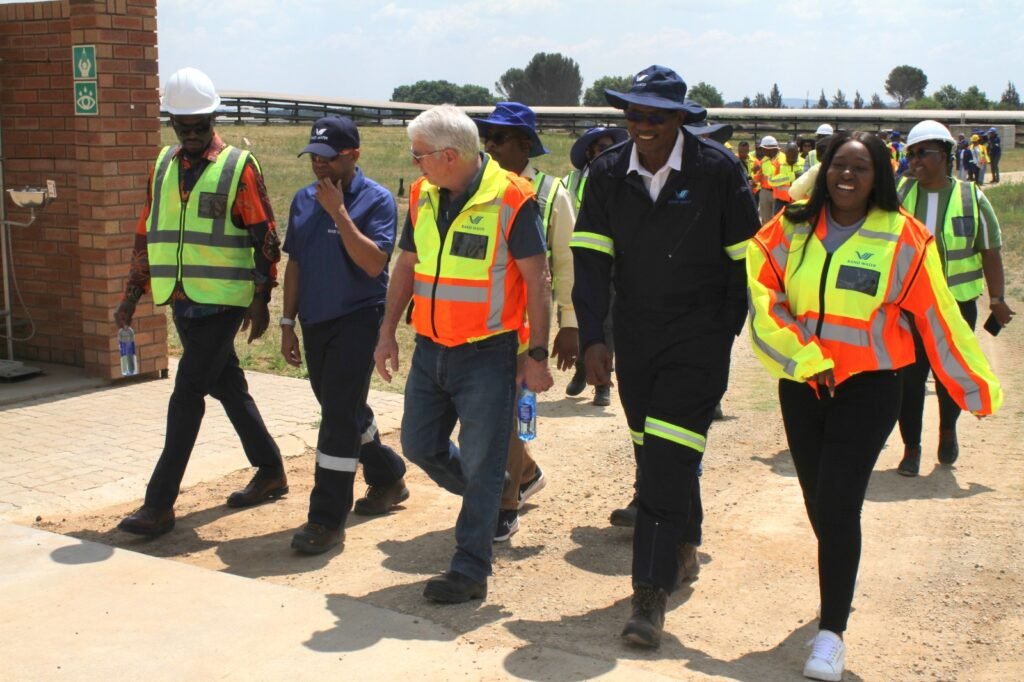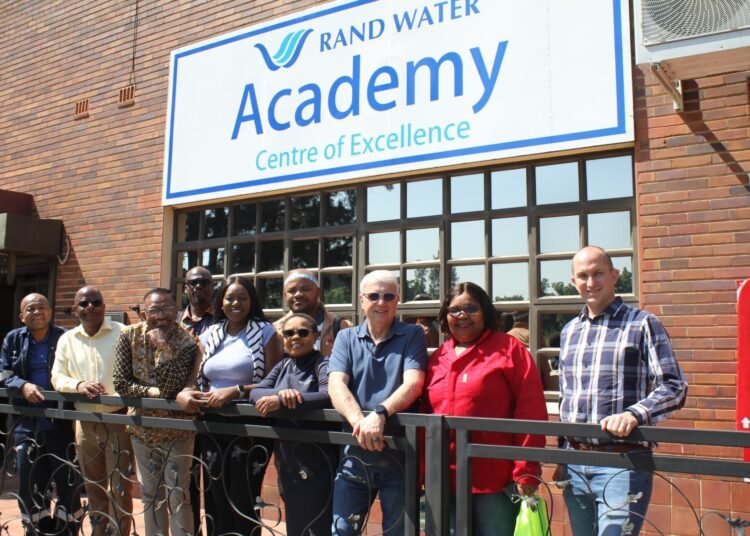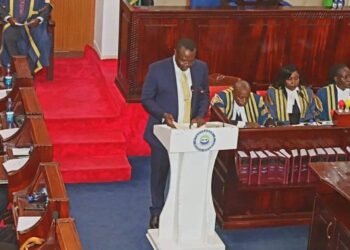In a move underscoring the urgent need for enhanced oversight and innovation in South Africa’s water sector, the Portfolio Committee on Water and Sanitation wrapped up its week-long inspection tour with a detailed visit to Rand Water’s Zuikerbosch Water Treatment Plant.
The delegation, chaired by Mr. LJ Basson, commended the utility’s state-of-the-art infrastructure and proactive maintenance strategies, while calling for the broader adoption of Special Purpose Vehicles (SPVs) to tackle persistent challenges like water losses and aging systems.
The visit, part of a comprehensive oversight program spanning KwaZulu-Natal and Gauteng provinces, aimed to evaluate progress in water service delivery, bolster government-entity collaborations, and safeguard sustainable access to clean water for millions of South Africans. As Gauteng grapples with ongoing water restrictions and infrastructure strains—exacerbated by high non-revenue water losses and climate pressures—the tour highlighted both successes and gaps in the national water ecosystem.
Hosted at the Zuikerbosch Academy Boardroom, the session kicked off with a briefing on the visit’s objectives, led by introductions from the Gauteng Provincial Head of the Department of Water and Sanitation. Rand Water’s Board Members, Chief Executive, and executive team then engaged in a candid dialogue with the committee. A key highlight was a detailed presentation on the organization’s operations and its ambitious five-year Capital Expenditure Infrastructure Plan, which prioritizes capacity expansion, modernization of aging facilities, and bolstering system resilience against droughts and urban demand surges.
Discussions during the question-and-answer segment zeroed in on critical pain points: strategies to reduce water losses from leaks, the transformative effects of completing the System 5 and Eikenhof flexibility projects, and the rollout of supply chain enhancements to support water boards and municipalities.
Committee members expressed particular appreciation for Rand Water’s role in the pilot SPV initiative with Emfuleni Local Municipality—a model Basson described as a “game-changer” for ring-fencing finances, attracting private investment, and fostering integrated infrastructure management. “A Special Purpose Vehicle offers a new, integrated model to manage water and sanitation infrastructure,” Basson stated in a post-visit media release. “It allows for ring-fenced finances, promotes investment in infrastructure, and creates space for partnerships between public entities and the private sector.”
ALSO READ: NIGERIA, GENCOS FINALIZE ₦4TRN POWER SECTOR DEBT REDUCTION PLAN
The day culminated in a hands-on tour of the Zuikerbosch System 5A Purification Plant, Africa’s largest water treatment facility, where lawmakers witnessed the sophisticated purification processes that supply vital resources to Gauteng’s metropolitan hubs, including Johannesburg, Ekurhuleni, and Tshwane.
The plant’s advanced technology and skilled workforce drew praise from the delegation, with Basson noting, “Our primary focus is to ensure that every South African has access to quality water and sanitation services. We will continue to enforce oversight, promote innovation, and demand accountability across all levels of government.”

This oversight comes amid heightened scrutiny of water utilities, following earlier engagements in the week with Johannesburg Water and the City of Johannesburg, where the committee urged a review of cross-subsidization models to prevent underfunding of critical services. While in KZN, the group voiced frustration over eThekwini’s absentee leadership during a scheduled accountability meeting, signaling Parliament’s zero-tolerance stance on lapses in municipal governance.
Rand Water, a cornerstone of South Africa’s water supply chain, serves over 19 million people across Gauteng and parts of neighboring provinces. The utility has invested billions in upgrades, including the Zuikerbosch expansions, to combat a projected 17% national water deficit by 2030.
Stakeholders from the Department of Water and Sanitation, Cooperative Governance and Traditional Affairs, the South African Local Government Association (SALGA), the Association of Water Services Authorities in Southern Africa (AWSISA), Gauteng Provincial Government, Johannesburg Water, City of Johannesburg, City of Ekurhuleni Metropolitan Municipality, and City of Tshwane Metropolitan Municipality were acknowledged for their collaborative roles in these efforts.
Basson concluded the visit by reaffirming the committee’s commitment: “The resolution of non-revenue water, the maintenance of aging infrastructure, and the adoption of new technologies require substantial and sustained investment. Quality water and sanitation services are non-negotiable for the socio-economic wellbeing of our nation.”






























































